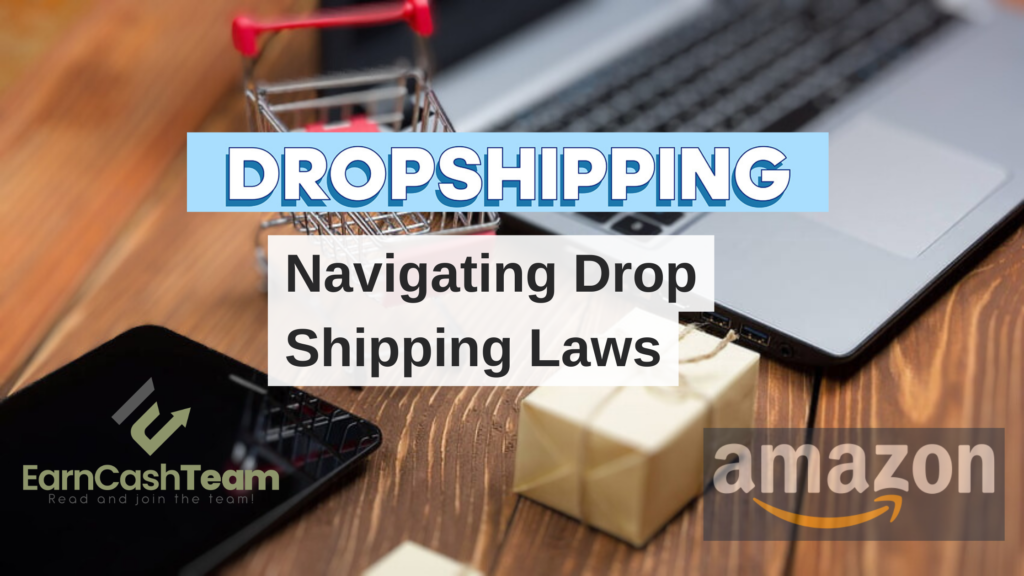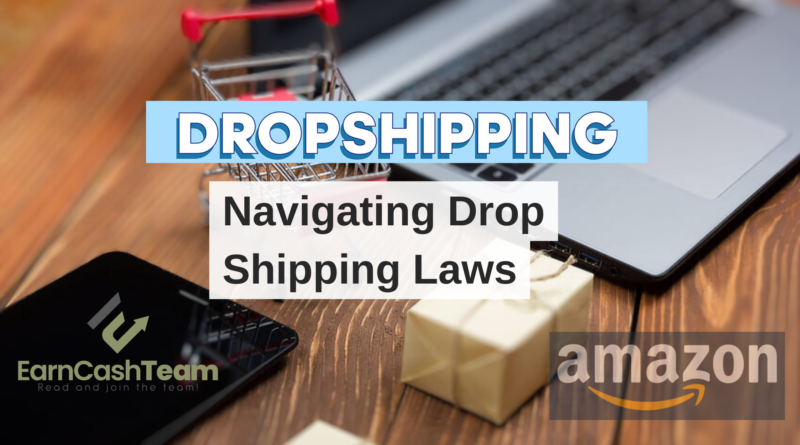Navigating Dropshipping Laws
Dropshipping allows retailers to sell products without keeping an inventory on hand, instead purchasing from third-party suppliers and having it sent directly to customers when an order comes through their online store. While this business model offers many advantages for both consumers and retailers alike, as with any endeavor there may be legal considerations worth noting when engaging in dropshipping activities.
You can check out other tips for dropshipping with us!

Tax and sales law issues are of primary concern when it comes to drop shipping, with taxes often being one of the first considerations for any online retailer. If selling in the US, sales tax may apply on any retail orders you place; specific rules differ by state – to make sure you comply with all relevant regulations, it’s advisable to consult a tax professional.
Intellectual property laws should also be taken into consideration, particularly if you use logos or trademarks of third-party brands to promote your product. Failing to abide by intellectual property laws could land you in legal hot water.
Navigating Drop Shipping Laws
Taxes present one of the greatest challenges to dropshippers; one such challenge lies in keeping abreast of all of the various rates and rules that apply. This can be particularly daunting when selling internationally as each country imposes their own VAT (Value Added Tax).
Key to building strong supplier relationships is keeping an open dialogue. Doing this will enable you to negotiate for better prices, shipping times and other perks that will enhance your bottom line and improve customer experiences. In addition, good relationships between you and suppliers can prevent backorders or delays that might adversely affect customer experiences.
At the core of it all lies having an effective refund policy in place. Consumers enjoy various consumer protection laws which allow them to reclaim their money if they’re dissatisfied with a purchase, so offering generous return and refund policies is paramount in protecting your customer base and fulfilling legal requirements in most states. Any dropshipper who attempts to deny refunds illegally would do well to follow these principles and offer generous return/refund policies instead.
Overall, dropshipping is an entirely legal business model as long as all relevant guidelines and regulations are followed. This means registering your business, complying with GST regulations (if applicable – currently, any Australian seller selling over $75,000 annually must register), adhering to consumer protection laws, product safety standards, advertising guidelines as well as adhering to any consumer protection laws or consumer laws that may exist within your region and following all necessary consumer safety guidelines and advertising restrictions. It is wise to hire an accountant or tax lawyer as early in your venture as possible so as you can ensure all sales tax and tax related issues are properly handled correctly.
You can directly reach out Amazon to start now!




